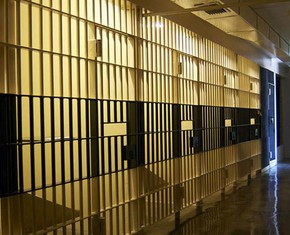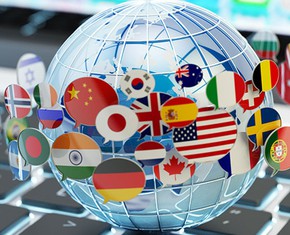The views expressed in our content reflect individual perspectives and do not represent the authoritative views of the Baha'i Faith.
Honesty, decency, faithfulness, and comradeship… must be shown when dealing with those of like blood but to no one else. What happens to a Russian, to a Czech, does not interest me in the slightest… Whether nations live in prosperity or starve to death like cattle interests me only insofar as we need them as slaves for our culture… Whether 10,000 Russian females collapse from exhaustion while digging an antitank ditch interests me only insofar as the antitank ditch for Germany is finished. – Heinrich Himmler, Reichsfuhrer of the Nazi SS.
Reading this horrifying quote, which describes Himmler’s and Hitler’s fascist totalitarian state and its hyper-nationalistic brutality quite succinctly, reminded me of the MS St. Louis, the German ocean liner that sailed across the Atlantic and tried to find homes for 908 Jewish refugees fleeing the Nazis in 1939.
It’s a fascinating story, later the subject of a book and a Hollywood film called Voyage of the Damned. From the title, you can probably guess what happened.
 The captain of the ocean liner, a heroic non-Jewish German named Gustav Schröder, steered his ship to Cuba, then to Florida, and finally towards Canada. No nation in the Americas would accept the refugees. Finally, Schröder had to sail back to Europe, where hundreds of the ship’s Jewish passengers later died in concentration camps. We could have saved them.
The captain of the ocean liner, a heroic non-Jewish German named Gustav Schröder, steered his ship to Cuba, then to Florida, and finally towards Canada. No nation in the Americas would accept the refugees. Finally, Schröder had to sail back to Europe, where hundreds of the ship’s Jewish passengers later died in concentration camps. We could have saved them.
We didn’t save them because of prejudice and anti-Semitism—and a strong bias against immigrants. In each country, anti-immigrant political forces prevailed.
One year earlier, in 1938, as Jewish people and many other persecuted minorities fled Nazi Germany by the thousands, England’s Daily Mail newspaper ran an ignominious, scare-tactic front-page headline: “Stateless Jews Pouring into this Country.”
Anti-immigrant politicians of the period rushed to assure their constituencies that no such thing would be allowed on their watch. The United States and several other South American and European nations had denied asylum to Jews before, and would continue to, despite their knowledge of the Nazi persecutions and murders.
This refusal to save people, a shameful chapter in our recent history, now threatens to repeat itself. One photograph—Aylan Kurdi, a three-year-old Syrian boy, drowned—has made the world face that fact.
As refugees pour out of de-stabilized, war-torn countries like Iraq, Syria and Libya, a huge refugee crisis has developed in Europe. As migrants and refugees, many of them children, flee dangerous and even murderous conditions in Central American nations and try to cross into the United States for asylum, the same thing has happened in the U.S. Refugees from Central African countries, from Afghanistan and North Korea and many other global trouble spots now desperately seek shelter from the terrible conditions they encounter in their home countries—but have few viable options for refuge.
The United Nations High Commission on Refugees (UNHCR) says almost 20 million people were on the move seeking refuge at the end of 2014; and that 3% of the world’s population are now refugees. This mass movement of desperate people raises a whole host of powerful, troubling questions: what does it mean to be a citizen? Do you feel secure in your role as a citizen of your country? What if the country you live in begins to decline, face corruption and destabilization and war? What if you had no work, no income, no way to feed your children? What if another, more powerful country invades, throws out your government and replaces it with one that no longer protects you or respects your human rights? What would you do then? What if conditions grew so bad that you feared for your life every day?
No matter what our citizenship, most of us would try to leave such misery. We would take our families and cross the border and try to find a place where we could have some security and peace. If conditions didn’t improve enough to return, we would voluntarily renounce our citizenship in our former country and try to become a citizen of our new nation—if we got very lucky, and that new nation accepted us.
This enormously unjust and completely arbitrary citizenship birth lottery now determines, more than any other single factor, how an individual will live, be treated, be educated, and live out his or her life. Those of us who win that lottery—born as citizens of stable, developed democracies, or accepted as immigrants and naturalized citizens by those countries—will have a chance to live better lives and have more opportunity than human beings at any other time in the world’s history. Those of us who lose that lottery—born as citizens of unstable, undeveloped countries with war, hunger, poverty and corrupt governments—will be condemned to a life without hope, or take the unknown risks most migrants and refugees take, putting their lives into the hands of smugglers and human traffickers to flee.
The immigration expert and author Ayelet Shachar, in her book The Birthright Lottery, calls this sad state of affairs “inherited privilege”—a form of property inheritance that becomes a valuable entitlement transmitted by law to a restricted group of recipients and their heirs. Nations, she writes, need to expand their membership boundaries beyond the old, unfair, outdated legal notions of citizenship.
For more than 150 years, the Baha’i teachings have said that these fundamental inequities must stop. How? Baha’is believe that all people have the inherent human right to world citizenship:
The oneness of the kingdom of humanity will supplant the banner of conquest, and all communities of the earth will gather under its protection. No nation with separate and restricted boundaries — such as Persia, for instance — will exist. The United States of America will be known only as a name. Germany, France, England, Turkey, Arabia — all these various nations will be welded together in unity. When the people of the future are asked, “To which nationality do you belong?” the answer will be, “To the nationality of humanity…” The people of the future will not say, “I belong to the nation of England, France or Persia”; for all of them will be citizens of a universal nationality — the one family, the one country, the one world of humanity — and then these wars, hatreds and strifes will pass away. – Abdu’l-Baha, The Promulgation of Universal Peace, p. 18.
In this series of essays on the massively complex and supremely important contemporary question of citizenship, we’ll look at the laws; examine the controversies; explore the potential solutions the Baha’i teachings offer; and take a hard look at what citizenship really means in a modern context.
You May Also Like
Comments

















There are Baha'i models (currently in practice) for community-based, self-run programs for the poor and others, along with application of principles of social justice so that people are not simply dependent refugees who overload the system for everyone. I see these programs as essential. One of their unique features is their ability to function in the midst of seeming utter chaos, ...such as what happened just after the recent cyclone on Vanuatu. Well-practiced young people from the Jr Youth Spiritual Empowerment Groups, both Baha'is and their friends, spontaneously arose and began to help neighbors rebuild and replant, as well as coordinate rescue efforts, before government and other entities could reach their communities. Impressive stuff.
This article lays out a strong ethical case for accepting immigrants in times of international crisis. I hope the author, in his continuing series on this important topic, covers some of its practical aspects as well as he did this principled one. IMO, of course.